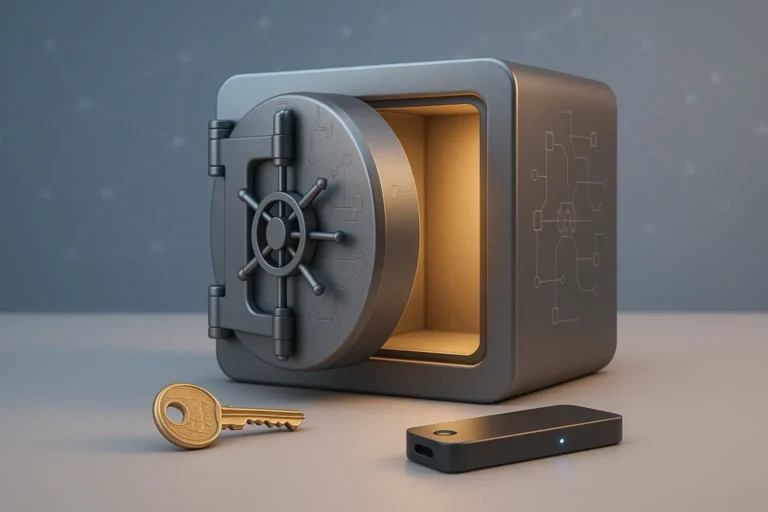Protecting your private keys is fundamental to safeguarding cryptocurrency assets in the DeFi space. Security experts recommend using hardware wallets and offline storage methods to shield private keys from online threats. These proven strategies can significantly reduce the risk of permanent fund loss, as emphasized by industry professionals.
- Hardware Wallets Protect Keys From Online Threats
- Offline Storage Prevents Permanent Fund Loss
- Use Hardware Wallets for Offline Key Storage
- Store Private Keys Offline With Physical Backups
Hardware Wallets Protect Keys From Online Threats
Use a hardware wallet to store your private keys—never keep them online.
Storing private keys in browser extensions, cloud storage, or screenshots is like leaving your house keys taped to the front door. Hardware wallets (like Ledger or Trezor) isolate your keys from internet-connected devices, keeping them safe from malware, phishing, and remote hacks.
Ignore this practice, and you risk total loss of your funds. There’s no customer support in DeFi. If someone gets your private key, your assets are gone. No refunds. No rollbacks. Just heartbreak and maybe a hard lesson learned on Twitter.

Offline Storage Prevents Permanent Fund Loss
Storing private keys offline in a hardware wallet as opposed to in a plain text file, cloud storage, or browser plugin is the most important step in DeFi security.
The significance of online storage attracts supply-chain, virus, and phishing attacks. There is no method to recover or change the password once a key is hacked, and the assets are permanently lost.
Because a team member left a private key in a synchronized cloud folder, I have witnessed companies lose entire treasuries. After a credential leak, attackers spent millions of dollars in a matter of hours. Unlike traditional finance, there is no clawback mechanism.

Use Hardware Wallets for Offline Key Storage
A primary security tip for managing your private keys in DeFi is to use a hardware wallet. These devices, often resembling a USB stick, store your private keys in an isolated, offline environment. This makes them virtually immune to online threats like malware, phishing, and remote hacking, since the keys never touch an internet-connected device. The potential consequence of not following this practice, such as storing your private keys on a “hot” wallet connected to the internet, is the total and irreversible loss of your funds. If your computer or mobile device is compromised, a hacker can gain access to your private key and drain your wallet in minutes. In DeFi, there’s no central authority to reverse transactions or help you recover your assets, meaning your private key is your only line of defense.

Store Private Keys Offline With Physical Backups
One of the most significant tips I can share is to never store private keys online or in a file that can be hacked, such as your computer desktop, email, or cloud drive. Instead, keep them written down and stored safely offline in a fireproof lockbox, with a second backup in a separate secure location. It might feel too old-school, but this habit creates peace of mind knowing your funds are safe. If you skip this practice and your private keys end up exposed, you’re essentially leaving the door wide open for hackers. Unlike a traditional bank account, there’s no customer service line to call and reverse the transaction; once your wallet is drained, the money is gone forever. So, keeping your keys offline is a simple step that can save you from a devastating loss.




